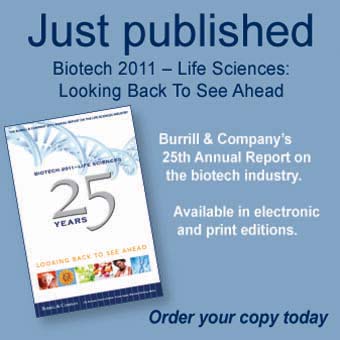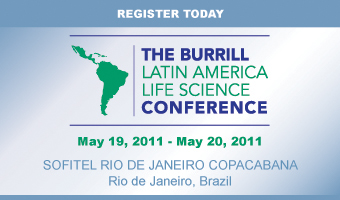“Benlysta’s winding path to FDA approval is a triumph for the dedicated pursuit of innovative science and smart trial design in achieving solid results in the complex autoimmune disease of lupus, says Margaret Dowd, president, Lupus Research Institute.”
Human Genome Sciences and GlaxoSmithKline have won approval from the U.S. Food and Drug Administration for Benlysta, the first new lupus medicine approved by the agency in 56 years.
The monoclonal antibody is projected by analysts to generate more than $1 billion in annual sales at its peak, a reward Human Genome and GSK will split equally. Human Genome Sciences, which has collaborated on the drug with GSK since 2006, says it has already hired a salesforce of 150 people and anticipates the medicine will become available before the end of March.
“Benlysta’s winding path to FDA approval is a triumph for the dedicated pursuit of innovative science and smart trial design in achieving solid results in the complex autoimmune disease of lupus,” says Margaret Dowd, president of the Lupus Research Institute.
The average price for an annual course of treatment with Benlysta will be approximately $35,000, a cost that will be offset for some patients by access programs supported by the company that will provide the drug for a discount or for free to some patients. Prior to Benlysta, the FDA last approved drugs, Plaquenil (hydroxychloroquine) and corticosteroids, to treat lupus in 1955. Aspirin was approved to treat lupus in 1948.
The FDA approval covers the use of Benlysta to treat patients with active, systemic lupus erythematosus who are receiving standard therapy, including corticosteroids, antimalarials, immunosuppressives, and nonsteroidal anti-inflammatory drugs.
“Benlysta, when used with existing therapies, may be an important new treatment approach for healthcare professionals and patients looking to help manage symptoms associated with this disease,” says Curtis Rosebraugh, a director within the agency’s Center for Drug Evaluation and Research.
Lupus, a serious and potentially fatal autoimmune disease, occurs when a person's body produces an immune response against its own tissues instead of solely attacking foreign invaders such as viruses, bacteria, and other toxins. People with the disease suffer from symptoms such as fever, intense fatigue and exhaustion, joint pains, cognitive problems and skin rashes. Estimates vary on the number of lupus sufferers in the United States ranging from approximately 300,000 to 1.5 million people.
Benlysta acts by targeting a specific protein called B-lymphocyte stimulator involved in stimulating the “auto-antibodies” causing lupus and certain other autoimmune disorders. A late-stage clinical trial showed that patients treated with the medicine and standard therapies experienced fewer symptoms than those who received a placebo and standard-of-care medicines.
African American patients and patients of African heritage participating in clinical trials did not appear to respond to treatment with Benlysta, an issue which Human Genome Sciences said it plans to explore in further tests.
Meanwhile, the partners will seek further approvals for the drug abroad. GSK submitted a marketing authorization application for Benlysta to the European Medicines Agency in June 2010. Regulatory applications have also been filed in Canada, Australia, Switzerland, Russia, Brazil and The Philippines.
March 11, 2011
http://www.burrillreport.com/article-lupus_drug_wins_fda_approval.html






.gif)
